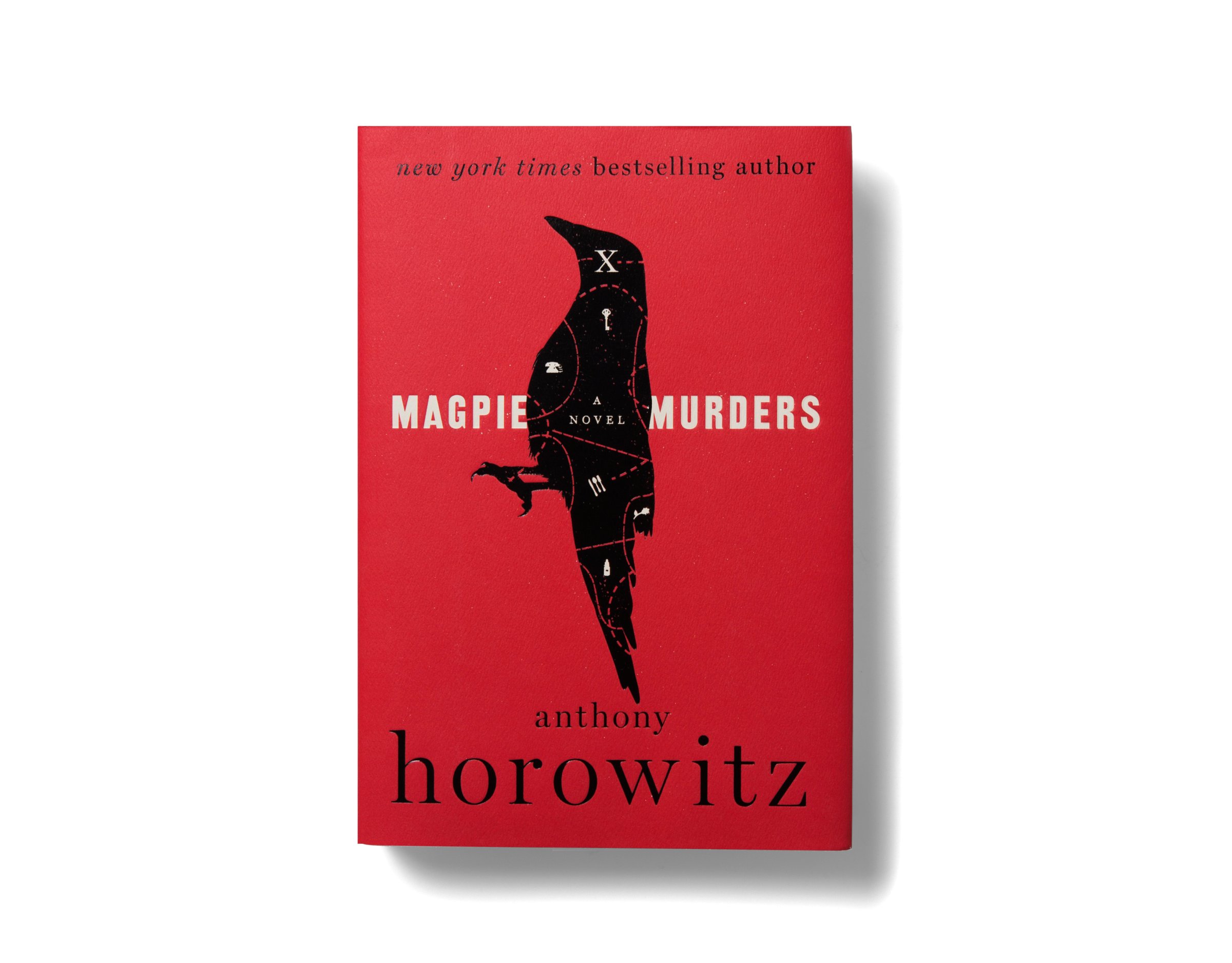
“Why is it that we have such a need for murder mystery,” asks Susan Ryeland, the narrator of British author Anthony Horowitz’s new novel, Magpie Murders, “and what is it that attracts us — the crime or the solution? Do we have some primal need of bloodshed because our own lives are so safe, so comfortable?”
If anyone should be able to answer these questions, it’s Susan. As an editor at a publishing house, she works with the massively successful Alan Conway, a writer of Agatha Christie-style whodunits. Magpie Murders is one mystery novel wrapped in another: we the readers peruse Alan’s latest manuscript alongside his editor, while another crime plays out in Susan’s life. Evidence mounts that finding the guilty party in the book will shed light on the case in real life.
Horowitz has spent a long career thinking up suspense stories in the vein of the genre’s greats. In addition to creating the popular British detective shows Midsomer Murders and Foyle’s War, he has written screenplays for the Poirot TV series, a James Bond novel commissioned by the Ian Fleming estate and a number of successful YA thrillers. Much like his character Alan, he is both prolific and a bona fide student of the golden age of detective fiction — and his knowledge shines through in this book, which is catnip for classic mystery lovers. As a Christie disciple, he is near equal to his master.
The novel within the novel, also titled Magpie Murders, has all the fixings of a murder in the English countryside, with a fussy detective, a daft sidekick, a meddling busybody, a peculiar vicar and a bombastic aristocrat. In addition to referencing Christie mysteries like 4:50 From Paddington, Horowitz name-drops his own oeuvre: “I thought it sounded too much like Midsomer Murders,” says one character of the manuscript’s title. In fact, the plot of the book bears a certain resemblance to the 1997 pilot of Midsomer Murders, which is itself based on the 1987 Caroline Graham novel The Killings at Badger’s Drift — a kind of in-joke for Horowitz fans. But even as Horowitz pays homage to the greats and teases his own ego, he manages to skewer our obsession with homicide. “I don’t understand it,” says one character. “All these murders on TV — you’d think people would have better things to do with their time.” The combination of reverence and irreverence makes the book irresistible for those of us with mixed emotions about our crime-fiction addiction.
Speaking of mixed emotions, the novel arrives in the U.S. at an interesting time for Horowitz. He recently got in hot water for saying he’d been warned off writing black characters as a white author. And he previously drew ire for calling black actor Idris Elba “too street” to play James Bond, for which he apologized. On the other hand, his own 007 novel introduced a gay best friend for the spy, and many of his stories, including Magpie Murders, feature gay narratives. With one foot in the present and one in the past, his public persona is perhaps a bit like his fiction.
But back to the story. As Susan digs into Alan’s personal life, she learns that he’s been inventing his own in-jokes in his novel plotting: hidden anagrams, thematic character names and other rhetorical devices to keep the writing process interesting for himself. It turns out the master of mystery isn’t as smitten with the genre as his readers. But the readers get the last laugh as these games lead to the ultimate twist.
With its elegant yet playful plotting, Magpie Murders is the thinking mystery fan’s ideal summer thriller.
More Must-Reads from TIME
- Inside Elon Musk’s War on Washington
- Meet the 2025 Women of the Year
- Why Do More Young Adults Have Cancer?
- Colman Domingo Leads With Radical Love
- 11 New Books to Read in Februar
- How to Get Better at Doing Things Alone
- Cecily Strong on Goober the Clown
- Column: The Rise of America’s Broligarchy
Contact us at letters@time.com